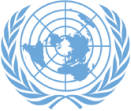Madam/Mister Chair,
1. It is a privilege for me to participate in this round table meeting with all of you from different countries.
2. National mechanisms for gender equality and the empowerment of women and girls are important mechanisms for affirmatively promoting gender equality and empowering of women, especially in strengthening Women’s Participation and leadership in all aspects of social, cultural and economic development. The Lao PDR actively maintains three national mechanisms: firstly, the government represented by the National Commission for the Advancement of Women, Mother and Children (NCAWMC); secondly, the mass organization, represented by the Lao Women’s Union; and thirdly, the legislature, represented by the National Assembly’s Women Caucus from central to grassroots levels.
3. The Lao PDR upholds its unwavering commitment to promoting gender equality and the empowerment of women and girls, while emphasizing the specific realities of the Lao society, our national socio-economic development, as well as our unique cultural characteristics and historical contexts. Importantly, the Government of the Lao PDR has created specific laws, such as the Law on Gender Equality, the Law on Prevention and Combating of Violence against Women and Children, the Law on the Development and Protection of Women and Interests; Vision 2030, the National Strategy and National Action Plan on Gender Equality, and the National Action Plan to Prevent and Eliminate of Violence against Women and Children. These national action plans are integrated into sectoral and provincial planning cycles.
4. We have emphasized multi-stakeholder engagement and have specifically mandated the promotion and participation of United Nations agencies, non- governmental organizations, civil society organizations, financial institutions, and women's groups in all processes of national law and policy development to promote gender equality and empower women and girls, including implementation, monitoring, and evaluation. In addition, these organizations have also provided technical and budgetary support to the Lao PDR.
5. The government has made efforts to allocate funds for gender equality measures by developing the law on State Budget, the law on gender equality. To implement these laws through the development of manuals and raise awareness for 2 government staff who are responsible for planning and financing and integrated gender equality budgeting into the chart of accounts.
6. By focusing on improving the availability of data in the National Statistics Center's database from large-scale surveys and representative surveys, ensuring data is disaggregated by age group, urban-rural area, and ethnic group, as well as drafting a manual to guide the collection and analysis of gender statistics across various sectors.
7. Moving forward, to advance these priorities and turn them into reality, key strategic pathways to address existing gaps and challenges for the implementation of BPfA in Lao PDR include:
1) Enhancing gender data collection and monitoring;
2) Building capacity and providing training;
3) Improving data accessibility and dissemination;
4) Further strengthening policy and strategic frameworks;
5) Enhancing greater international cooperation and support;
6) Addressing data gaps;
7) Promoting implementation of economic empowerment initiatives;
8) Further strengthening legal and institutional frameworks;
9) Accelerating and promoting gender-responsive budgeting, and
10) Intensifying awareness raising and changing social norms.
Thank you, Madam/Mister Chair,

